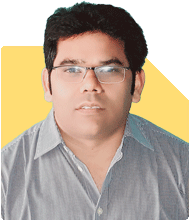Ramalingam Kalirajan |7330 Answers |Ask -Follow
Mutual Funds, Financial Planning Expert - Answered on Dec 24, 2024
He has an MBA in finance from the University of Madras and is a certified financial planner.
He is the director and chief financial planner at Holistic Investment, a Chennai-based firm that offers financial planning and wealth management advice.... more

Hello my father 55YO has 90L worth stocks I want to diversify it into mf and gold along with stocks to get atleast 1.5cr return after his retirement which is 5yrs later. What are the steps he should take and would investing in small cap fund be a wise decision? We dont want to withdraw after 5years but that would depend on the amount generated. Additionally he would also get a lumpsum of 30L-40L when he retires kindly suggest ways in which the total money can be invested to get atleast 50k per month through SWP. Also please suggest funds good for SWP
Suggested Diversification Approach
Stocks
Retain a portion of the stock portfolio to maintain growth potential.
Focus on a mix of large-cap and mid-cap stocks for stability and growth.
Gradually reduce exposure to highly volatile stocks if present.
Mutual Funds
Allocate around 40% of the total investment to equity mutual funds.
Opt for a mix of large-cap, mid-cap, and small-cap funds.
Small-cap funds have higher growth potential but also higher risk.
Consider balanced advantage funds for risk-adjusted returns.
Gold
Allocate 10-15% of the total investment to gold.
Prefer sovereign gold bonds or gold mutual funds over physical gold.
These options provide liquidity and tax benefits.
Investment Plan for Retirement Corpus
Upon retirement, your father will receive Rs 30-40 lakh. This can be strategically invested to generate a monthly income of Rs 50,000.
Step-by-Step Plan
Debt Mutual Funds:
Allocate 50% of the retirement corpus to debt mutual funds.
Focus on short-term and ultra-short-term funds for stability.
Debt funds can generate consistent returns with lower risk.
Systematic Withdrawal Plan (SWP):
Set up SWP from debt mutual funds to provide monthly income.
Start with Rs 50,000 per month while leaving room for inflation adjustment.
Hybrid Funds:
Allocate 30% of the retirement corpus to hybrid funds.
Hybrid funds balance equity and debt, offering moderate growth and safety.
Equity Mutual Funds:
Invest 20% in equity funds for long-term growth.
Choose large-cap and flexi-cap funds for moderate risk.
Evaluating Small-Cap Funds
Small-cap funds offer high growth potential. However, they come with high volatility and risk. Investing a small portion of the portfolio (10-15%) in small-cap funds is advisable. Monitor performance regularly and rebalance as needed.
Tax Implications
Equity Mutual Funds:
Gains above Rs 1.25 lakh are taxed at 12.5% (LTCG).
Short-term gains are taxed at 20%.
Debt Mutual Funds:
Gains are taxed as per your father’s income tax slab.
Recommendations for SWP-Friendly Funds
Opt for mutual funds with a proven track record of consistent performance.
Prefer funds with low volatility and steady returns.
Hybrid and debt mutual funds are ideal for setting up SWP.
Key Considerations
Regularly review and rebalance the portfolio.
Avoid direct funds; choose regular funds through a Certified Financial Planner.
Consult a CFP for customized investment planning.
Focus on long-term wealth creation rather than short-term gains.
Final Insights
Diversification is key to achieving financial goals and reducing risk. A well-balanced portfolio of stocks, mutual funds, and gold can help you reach the Rs 1.5 crore target. Setting up an SWP ensures steady monthly income post-retirement. Regular portfolio reviews and adjustments are essential for success.
Best Regards,
K. Ramalingam, MBA, CFP,
Chief Financial Planner,
www.holisticinvestment.in
https://www.youtube.com/@HolisticInvestment
You may like to see similar questions and answers below
Ramalingam Kalirajan |7330 Answers |Ask -Follow
Mutual Funds, Financial Planning Expert - Answered on May 06, 2024
Ramalingam Kalirajan |7330 Answers |Ask -Follow
Mutual Funds, Financial Planning Expert - Answered on May 20, 2024
Ramalingam Kalirajan |7330 Answers |Ask -Follow
Mutual Funds, Financial Planning Expert - Answered on May 18, 2024
Ramalingam Kalirajan |7330 Answers |Ask -Follow
Mutual Funds, Financial Planning Expert - Answered on Aug 16, 2024
Dr Nagarajan Jsk |185 Answers |Ask -Follow
NEET, Medical, Pharmacy Careers - Answered on Dec 24, 2024
Dr Nagarajan Jsk |185 Answers |Ask -Follow
NEET, Medical, Pharmacy Careers - Answered on Dec 24, 2024
Onkar Singh |25 Answers |Ask -Follow
Career Management, Skills Development Expert - Answered on Dec 24, 2024
Rajesh Kumar Singh |22 Answers |Ask -Follow
IIT-JEE, GATE Expert - Answered on Dec 24, 2024
Dr Dipankar Dutta |727 Answers |Ask -Follow
Tech Careers and Skill Development Expert - Answered on Dec 24, 2024
Mayank Chandel |1950 Answers |Ask -Follow
IIT-JEE, NEET-UG, SAT, CLAT, CA, CS Exam Expert - Answered on Dec 24, 2024
Milind Vadjikar |795 Answers |Ask -Follow
Insurance, Stocks, MF, PF Expert - Answered on Dec 24, 2024
Radheshyam Zanwar |1112 Answers |Ask -Follow
MHT-CET, IIT-JEE, NEET-UG Expert - Answered on Dec 24, 2024
Ravi Mittal |474 Answers |Ask -Follow
Dating, Relationships Expert - Answered on Dec 24, 2024
Milind Vadjikar |795 Answers |Ask -Follow
Insurance, Stocks, MF, PF Expert - Answered on Dec 24, 2024




























